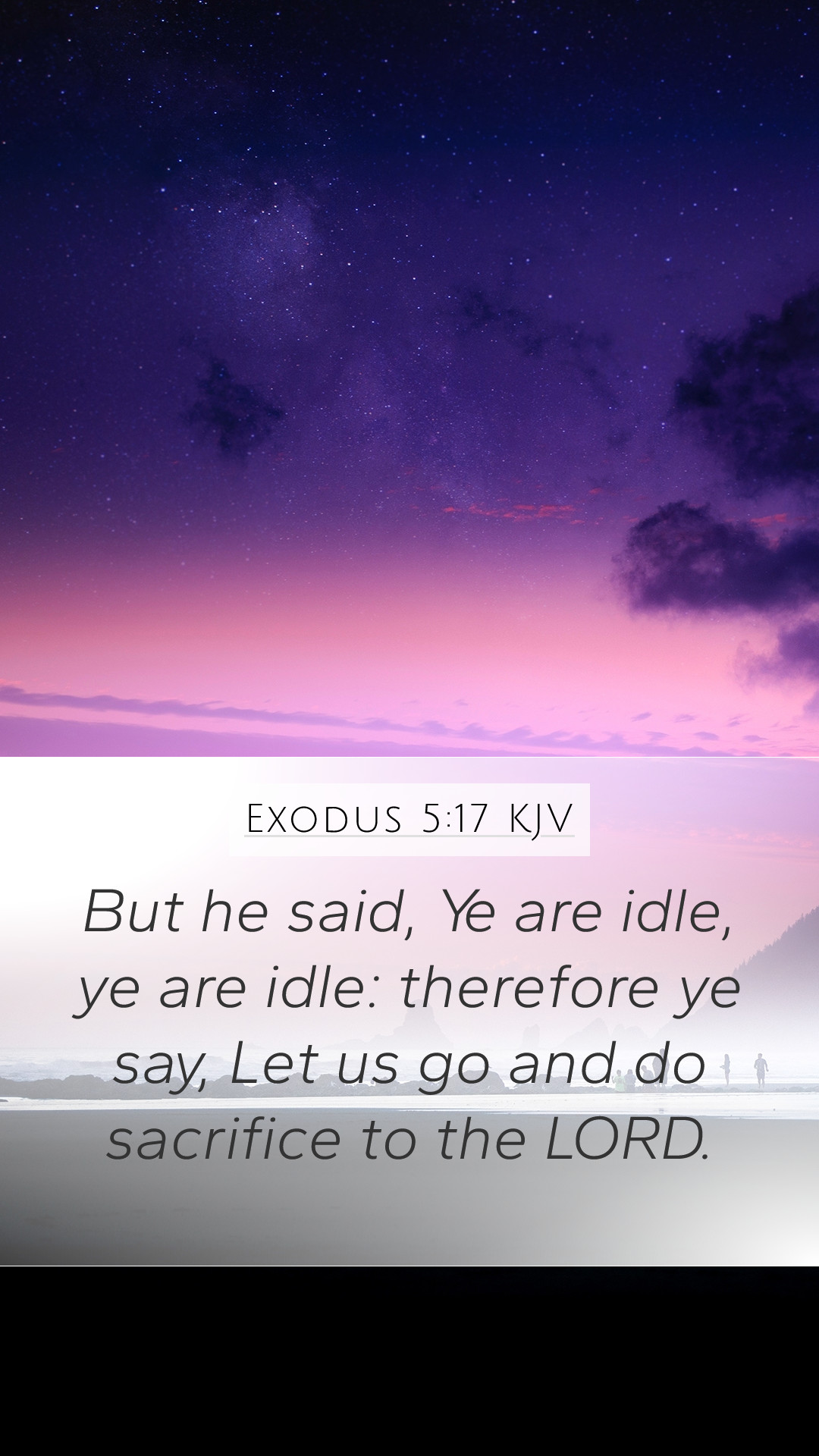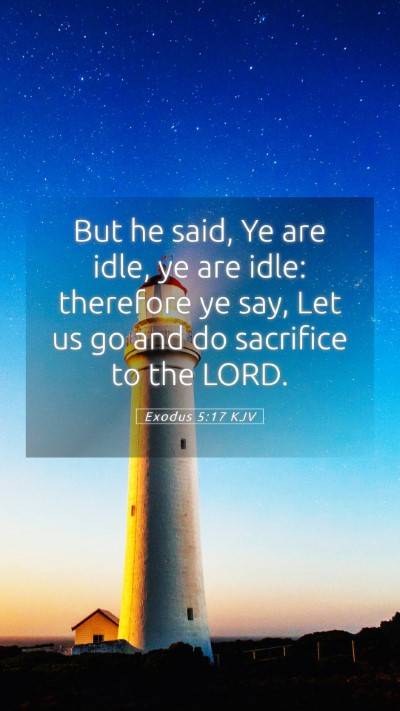Understanding Exodus 5:17
Exodus 5:17 states: "But he said, 'You are idle, you are idle! Therefore you say, 'Let us go and sacrifice to the Lord.'" (ESV)
Overview
This verse comes in the context of Moses and Aaron confronting Pharaoh to let the Israelites go and worship. The response of Pharaoh indicates his refusal and his harsh view towards the Israelite laborers. They are labeled as "idle," demonstrating Pharaoh's perspective on their desire to worship.
Bible Verse Meanings
- Pharaoh's Dismissive Attitude: Pharaoh perceives the request to sacrifice as a sign of laziness. This attitude reflects his oppression and the cultural context of slavery, where any request for freedom is seen as idle chatter.
- Spiritual Significance: The demand for sacrifice highlights the importance of worship in the life of the Israelites. It underscores the idea that serving God requires freedom from worldly toil.
- Historical Context: Understanding the economic and social structure of ancient Egypt is key to interpreting Pharaoh's response. The Israelites' labor was crucial to the Egyptian economy, making Pharaoh's opposition to any request for freedom particularly significant.
Bible Verse Interpretations
The commentary from Matthew Henry emphasizes that Pharaoh's words reveal a hardened heart, unwilling to acknowledge the God of Israel. He suggests that this attitude not only reflects Pharaoh’s pride but also sets the stage for God's eventual deliverance of His people.
Albert Barnes elaborates on the notion of Egypt's oppression, stating that Pharaoh’s view of the Israelites as idle signifies a spiritual blindness to their need for worship and that God’s will for His people is paramount.
According to Adam Clarke, the term "idle" is critical, as it illustrates the mindset of those in power who often view the spiritual needs of others with disdain. Clarke argues that the phrase reveals both a societal and spiritual conflict, as Pharaoh cannot understand the value of true worship and service to God.
Bible Verse Explanations
This verse comprises several layers of meaning that can be uncovered through Bible verse commentary and analysis.
1. The Misunderstanding of Idleness:
This word illustrates common misconceptions about spiritual activities. Pharaoh equates the act of desiring to worship God with laziness. This view contrasts with how believers perceive worship as essential for spiritual health and freedom.
2. The Call to Worship:
Exodus 5:17 highlights the intrinsic human need for worship. The reluctance of Pharaoh signifies the struggle between worldly powers and divine commandments. When understanding Scripture, knowing God’s intent for His people to worship authentically is vital.
3. Response to Oppression:
This passage illustrates the struggle of oppressed people to seek freedom and draw closer to God. The narrative portrays worship not just as a routine act but as a vital expression of faith and allegiance to God amidst suffering.
Related Bible Cross References
- Exodus 3:18: The initial request for freedom to worship.
- Exodus 4:30-31: Moses and Aaron's explanation to the Israelites about God's concern for them.
- Exodus 6:1-9: God reassuring Moses of His commitment to deliver Israel from Egypt.
Conclusion
Exodus 5:17 serves as a profound reminder of the spiritual conflict between earthly rulers and divine obedience. Understanding this verse enables deeper insights into the struggles of faith, the nature of true worship, and the tenacity of an oppressive regime against those seeking to honor God.
For those engaging in Bible study groups or in online Bible study, this passage provides rich material for discussions on applying Bible verses to daily life and recognizing the importance of worship amidst life's challenges.


